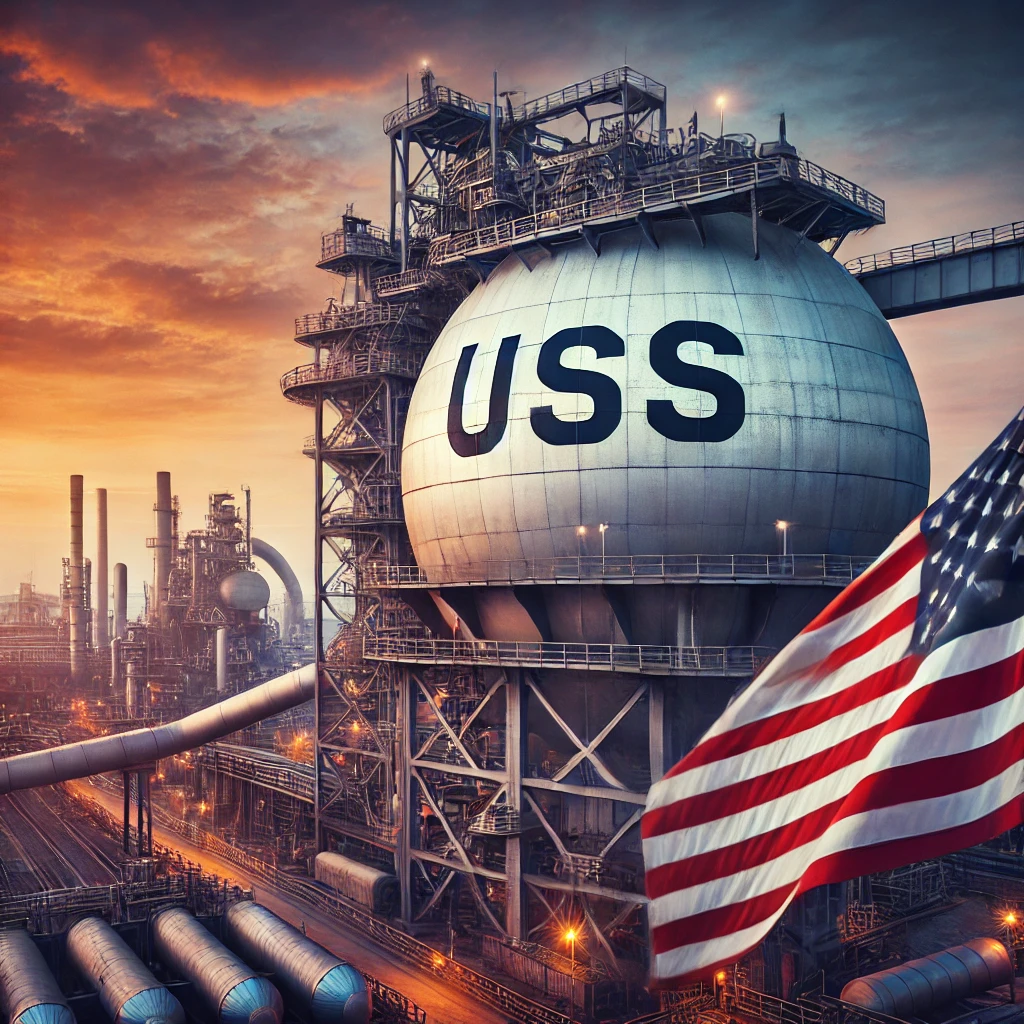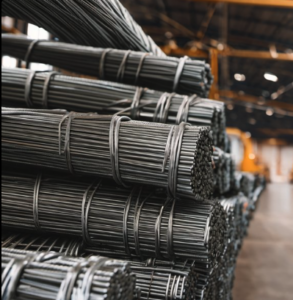
In early January 2025, a major legal and political dispute erupted in the United States when U.S. Steel and Japan’s Nippon Steel announced lawsuits against the Biden administration. The companies were responding to the administration’s decision to block their proposed $15 billion merger. President Biden’s decision was based on concerns over national security, a stance that aligns with his administration’s broader approach to safeguarding critical industries.
However, U.S. Steel and Nippon Steel claim that the decision was not purely about national security but was influenced by political motives and unfair processes. The legal challenge is shaping up to be a landmark case with significant implications for the steel industry, U.S.-Japan trade relations, and future corporate mergers.
This article provides an in-depth look at the key issues, the motivations of all parties involved, and the potential impacts on industry and politics.
The Proposed Merger: A $15 Billion Deal
The merger between U.S. Steel and Nippon Steel was seen as a transformative step for the global steel industry. The deal, valued at $15 billion, would have combined the strengths of both companies to create a formidable player in the market.
Strategic Goals
-
Global Competitiveness:
The merger aimed to boost competitiveness in a market increasingly dominated by Chinese steel producers. By pooling resources and technology, the combined entity would have had a stronger global footprint. -
Innovation and Efficiency:
Both companies highlighted their shared commitment to innovation. The merger would have allowed them to streamline operations and develop new technologies, such as advanced steel products for the automotive and construction industries. -
Market Expansion:
With Nippon Steel’s expertise in high-quality steel and U.S. Steel’s established presence in North America, the merger promised to open up new markets for both entities.
Potential Concerns
Despite these potential benefits, the deal raised several red flags. Critics argued that the merger could lead to reduced competition in the U.S. steel market, potentially driving up prices for consumers and businesses. Furthermore, the involvement of a foreign company in a critical industry sparked concerns about national security.
Biden’s Decision to Block the Deal
On January 4, 2025, President Biden officially blocked the merger, citing national security concerns. In a public statement, the administration explained that allowing a foreign entity to acquire a significant stake in U.S. Steel could compromise critical infrastructure and defense capabilities.
National Security Justification
Steel is considered a cornerstone of national security due to its role in defense manufacturing, infrastructure, and energy production. The administration argued that granting a foreign company control over a major U.S. steel producer posed unacceptable risks.
Alignment with Policy Goals
The decision aligns with the Biden administration’s broader economic policies, which prioritize strengthening domestic manufacturing and protecting critical industries. By blocking the merger, the administration signaled its commitment to maintaining U.S. control over essential resources.
The Lawsuits: Key Allegations and Motivations
The decision to block the merger did not sit well with U.S. Steel and Nippon Steel, prompting them to file lawsuits against the Biden administration on January 5, 2025.
Allegation 1: Political Interference
The lawsuits allege that the decision was politically motivated. Specifically, the companies claim that the administration blocked the deal to gain favor with the United Steelworkers union, a key ally of President Biden.
-
Union Influence:
The United Steelworkers union publicly opposed the merger, arguing that it could lead to job losses and reduced bargaining power. The lawsuits suggest that this opposition heavily influenced the administration’s decision. -
Election Dynamics:
Some analysts believe the decision was aimed at securing union support in the aftermath of the 2024 presidential election. Labor unions have traditionally been a stronghold of Democratic support, making their endorsement crucial for political stability.
Allegation 2: Due Process Violations
The lawsuits also accuse the administration of violating due process rights. According to the companies, the decision to block the merger lacked transparency and failed to provide sufficient justification.
-
Lack of Evidence:
U.S. Steel and Nippon Steel argue that the administration did not present concrete evidence to support its national security claims. -
Unfair Treatment:
The companies contend that they were not given a fair opportunity to address the government’s concerns, undermining the integrity of the decision-making process.
Allegation 3: Collusion
The lawsuits extend beyond the Biden administration, targeting United Steelworkers president David McCall and Cleveland-Cliffs CEO Lourenco Goncalves.
-
Conspiracy Claims:
The companies allege that McCall and Goncalves conspired to obstruct the merger, citing efforts to manipulate government officials. -
Motivations:
Cleveland-Cliffs, a competitor to U.S. Steel, stood to benefit from the merger being blocked. The lawsuits suggest that Goncalves played a role in influencing the administration’s decision.
Broader Implications for the Steel Industry
The legal battle has sparked a broader debate about the future of the U.S. steel industry and its role in the global market.
Economic Consequences
-
Missed Opportunities:
By blocking the merger, critics argue that the administration may have hindered innovation and efficiency in the steel industry. -
Market Fragmentation:
Without the merger, U.S. Steel and Nippon Steel must continue to compete individually in a challenging global market. This fragmentation could weaken their competitive positions, particularly against Chinese steel producers.
National Security vs. Economic Growth
The case highlights the delicate balance between protecting national security and fostering economic growth. While the administration’s concerns about foreign ownership are valid, critics argue that the economic benefits of the merger outweigh the risks.
The Political Landscape
The decision to block the merger is as much about politics as it is about economics.
Labor Unions and Policy
Labor unions like the United Steelworkers wield significant influence in shaping industrial policy. By siding with the union, the Biden administration reinforced its commitment to protecting American workers, a central theme of the President’s economic agenda.
Trade Relations with Japan
The decision has strained relations between the U.S. and Japan, two close allies. Nippon Steel’s involvement in the lawsuit reflects broader concerns about the fairness of U.S. trade policies.
Potential Outcomes of the Lawsuit
The lawsuits filed by U.S. Steel and Nippon Steel could lead to several possible outcomes, each with its own set of implications.
1. Reversal of the Decision
If the courts rule in favor of the companies, the merger could proceed. This outcome would be a significant victory for U.S. Steel and Nippon Steel but could also raise questions about the administration’s authority to block mergers.
2. Affirmation of the Block
A ruling in favor of the administration would strengthen the government’s ability to regulate mergers, particularly in industries deemed critical to national security.
3. Settlement
A negotiated settlement remains a possibility, though it would require concessions from both sides. For instance, the companies might agree to certain conditions to address the government’s concerns.
The lawsuits filed by U.S. Steel and Nippon Steel against the Biden administration mark a pivotal moment for the steel industry and U.S. trade policy. At its core, the dispute is about more than just a merger—it reflects the ongoing tension between national security, economic growth, and political considerations.
As the legal battle unfolds, its outcome will shape the future of corporate mergers, government regulation, and international trade. Whether the courts side with the companies or the administration, the case will leave a lasting impact on the steel industry and its role in the global economy.
Feel free to check out our other website at : https://synergypublish.com

